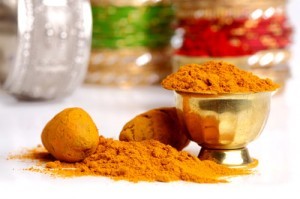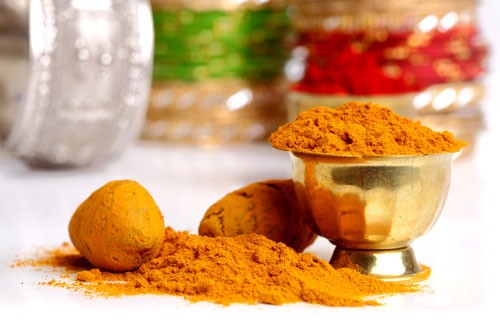
Curcumin, is an anti-inflammatory molecule in the turmeric root, a relative of ginger. Turmeric has been used for thousands of years as a medicinal preparation and a preservative and coloring agent in foods. Curcumin was isolated as the major yellow pigment in turmeric; chemically diferulomethane, and has a polyphenolic molecular structure similar to other plant pigments (eg. extracted from grapes in wine (resveratrol), or in green tea (catechins) or in certain fruit juices (blueberries, strawberries, pomegranates etc.) This polyphenols share in common anti-oxidant and anti-inflammatory properties with associated health benefits.
New Research on the Multiple Benefits of this Potent Health-Promoting, Disease-Fighting Agent From powerful heart medications and antibiotics to simple aspirin, many modern pharmaceuticals have been derived directly from ancient plant and fungal sources that exhibit remarkable abilities to improve well being and intervene in disease processes at the molecular level. Scientists continue to discover medically useful plant compounds that demonstrate powerful anti-inflammatory, anticancer, antibiotic, and antiaging properties. Turmeric is a case in point. This tropical root delivers a smorgasbord of powerful health benefits. New research shows that turmeric—and its main bioactive compound, curcumin—has the power to block inflammation, stop cancer, kill infectious microbes, and improve heart health.
The health benefits of over-the-counter curcumin supplements might not get past your gut, but new research shows that a modified formulation of the spice releases its anti-inflammatory goodness throughout the body.
Curcumin is a naturally occurring compound found in the spice turmeric that has been used for centuries as an Ayurvedic medicine treatment for such ailments as allergies, diabetes and ulcers.
Anecdotal and scientific evidence suggests curcumin promotes health because it lowers inflammation, but it is not absorbed well by the body. Most curcumin in food or supplements stays in the gastrointestinal tract, and any portion that’s absorbed is metabolized quickly.
Many research groups are testing the compound’s effects on disorders ranging from colon cancer to osteoarthritis. Others, like these Ohio State University scientists, are investigating whether enabling widespread availability of curcumin’s biological effects to the entire body could make it useful both therapeutically and as a daily supplement to …
An immediate effect on memory has been describe anectdotally, but it would not necessarily be expected. In mouse studies spatial memory was measured after three months treatment. The most obvious initial effect would be a reduction in symptoms of joint pain or other inflammatory conditions. In one trial described here, only unformulated curcumin was used and free curcumin was relatively undetectable. Importantly, in extended results from the naproxen trial for Alzheimer's prevention, naproxen showed prevention of conversion to Alzheimer's; however, during the first year subjects’ memory worsened. It has not yet been determined whether lowering the dose until symptoms subside might avoid these deteriorations. Considering that we know that in animals curcumin clears out toxic amyloid and tau aggregates, it could conceivably transiently worsen memory. Although transient worsening of memory has not been observed in animals, it has been anecdotally been reported by some patients.
Please Read this Article at NaturalBlaze.com





Leave a Reply